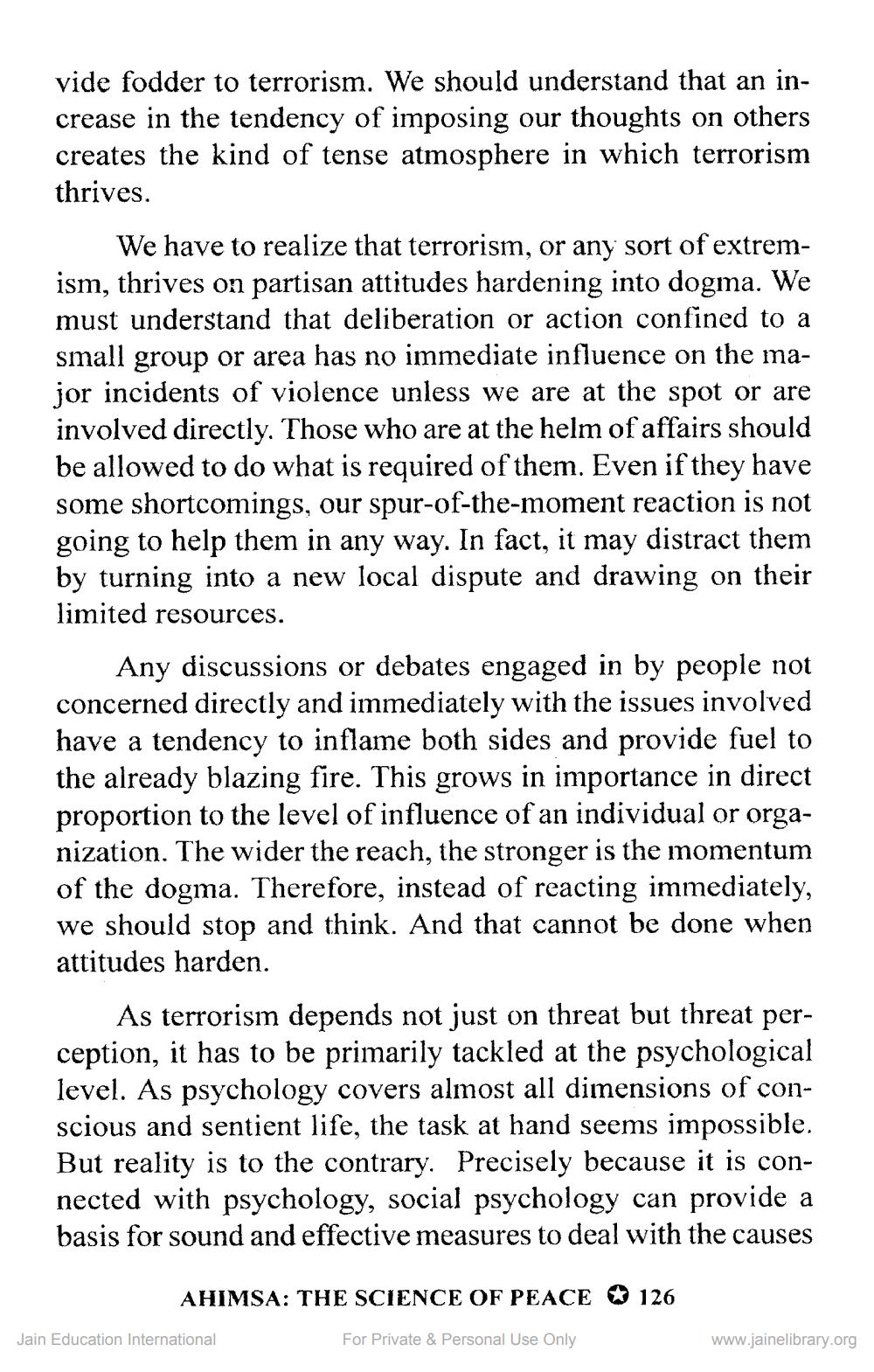________________
vide fodder to terrorism. We should understand that an increase in the tendency of imposing our thoughts on others creates the kind of tense atmosphere in which terrorism thrives.
We have to realize that terrorism, or any sort of extremism, thrives on partisan attitudes hardening into dogma. We must understand that deliberation or action confined to a small group or area has no immediate influence on the major incidents of violence unless we are at the spot or are involved directly. Those who are at the helm of affairs should be allowed to do what is required of them. Even if they have some shortcomings, our spur-of-the-moment reaction is not going to help them in any way. In fact, it may distract them by turning into a new local dispute and drawing on their limited resources.
Any discussions or debates engaged in by people not concerned directly and immediately with the issues involved have a tendency to inflame both sides and provide fuel to the already blazing fire. This grows in importance in direct proportion to the level of influence of an individual or organization. The wider the reach, the stronger is the momentum of the dogma. Therefore, instead of reacting immediately, we should stop and think. And that cannot be done when attitudes harden.
As terrorism depends not just on threat but threat perception, it has to be primarily tackled at the psychological level. As psychology covers almost all dimensions of conscious and sentient life, the task at hand seems impossible. But reality is to the contrary. Precisely because it is connected with psychology, social psychology can provide a basis for sound and effective measures to deal with the causes
AHIMSA: THE SCIENCE OF PEACE 126 For Private & Personal Use Only
Jain Education International
www.jainelibrary.org




